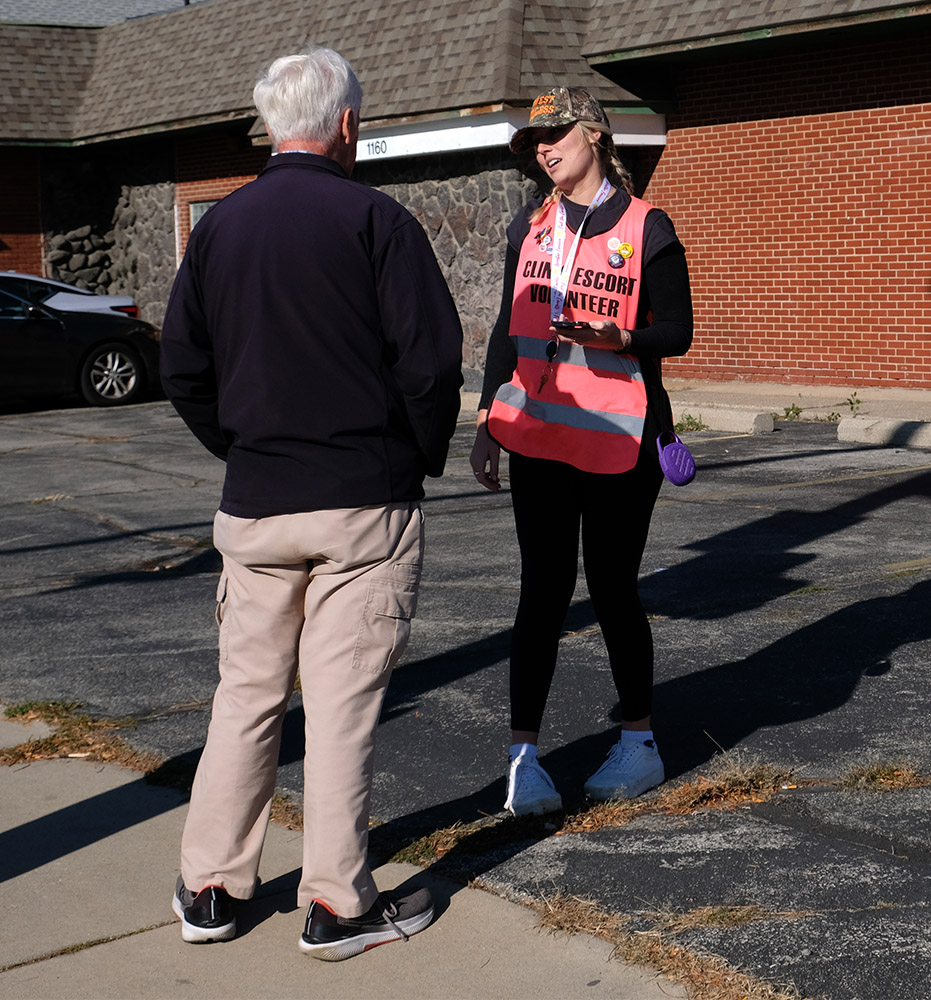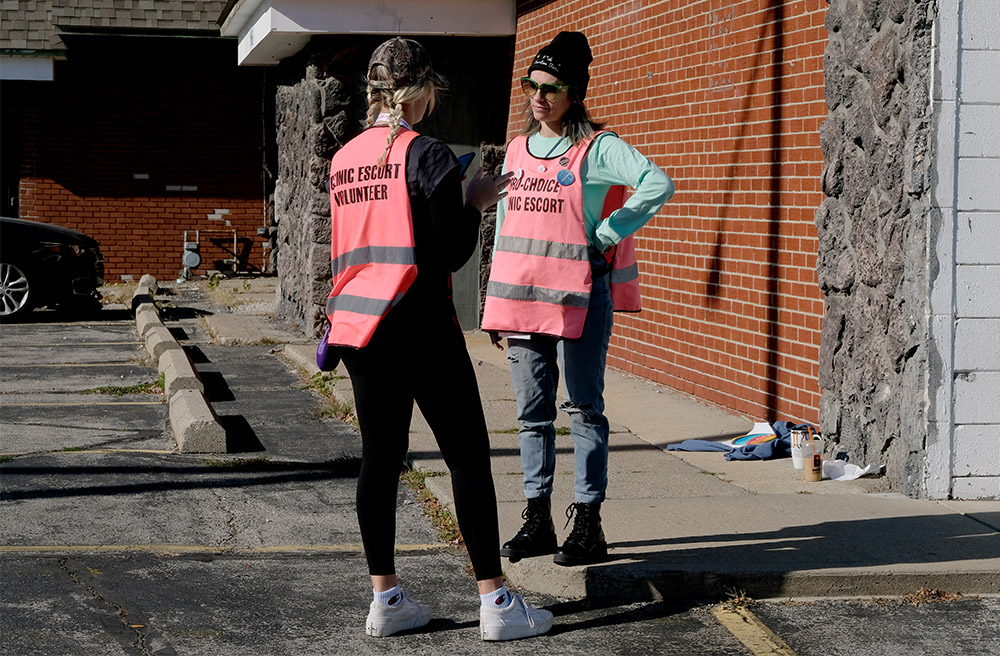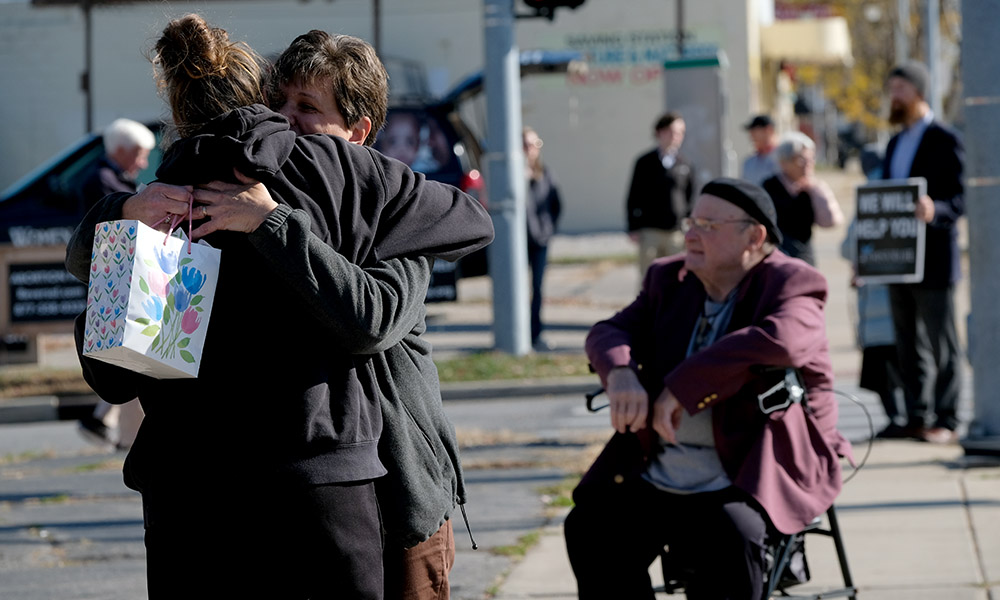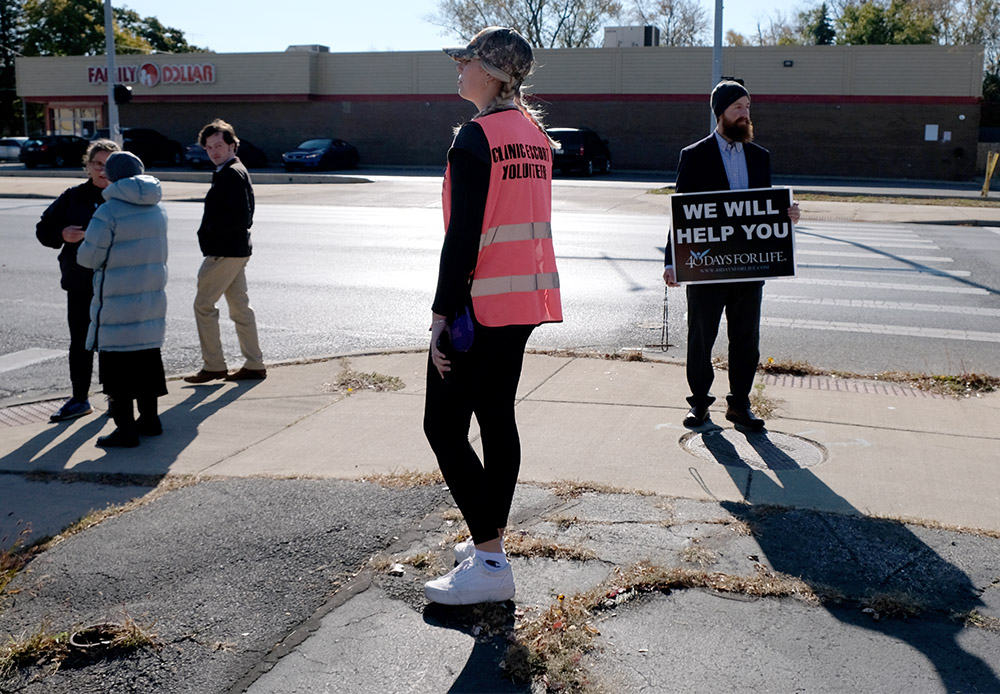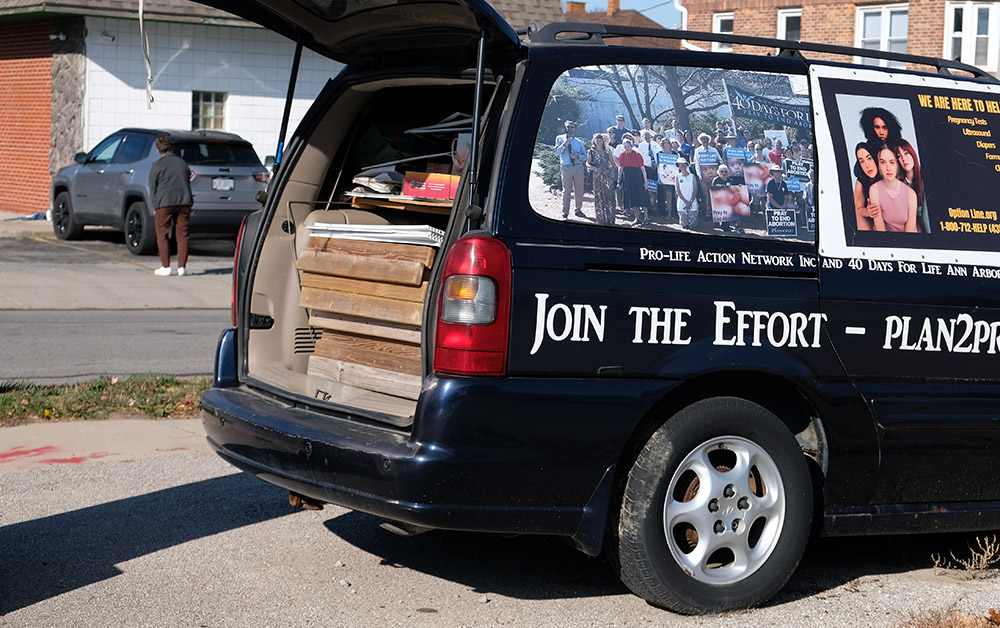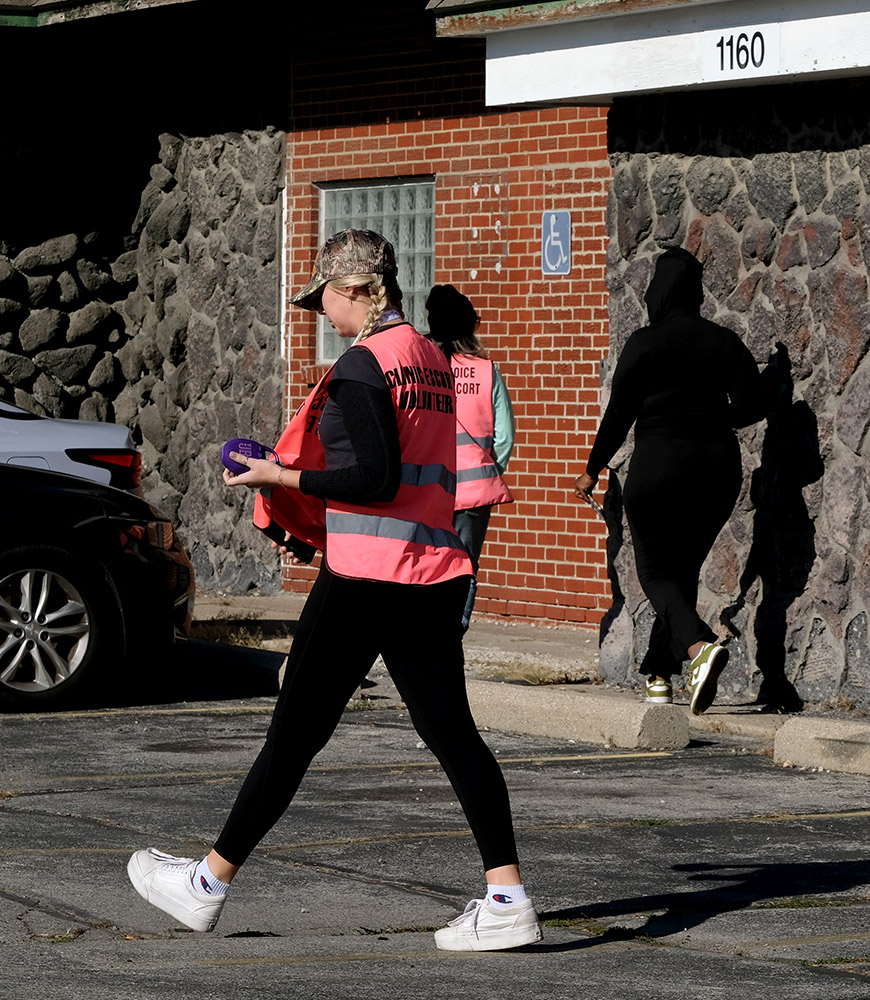This is the second of a limited series about reproductive healthcare options and care for women in the Toledo area.
TOLEDO – When the Toledo Free Press caught up with Kristin Hady at Maddie & Bella in downtown Perrysburg, she was wearing a necklace with the word “abortion” on it, just in case anyone might be tempted to question her stance on reproductive rights.
Hady is a board member for The Aggie Fund, an organization founded in 1992 to fund abortions for residents of Toledo and surrounding areas. It is a volunteer-led, 501(c)3 organization that — at the time of this interview — had just hosted a bake sale fundraiser at the Toledo Women’s Center, which is Toledo’s sole abortion clinic.
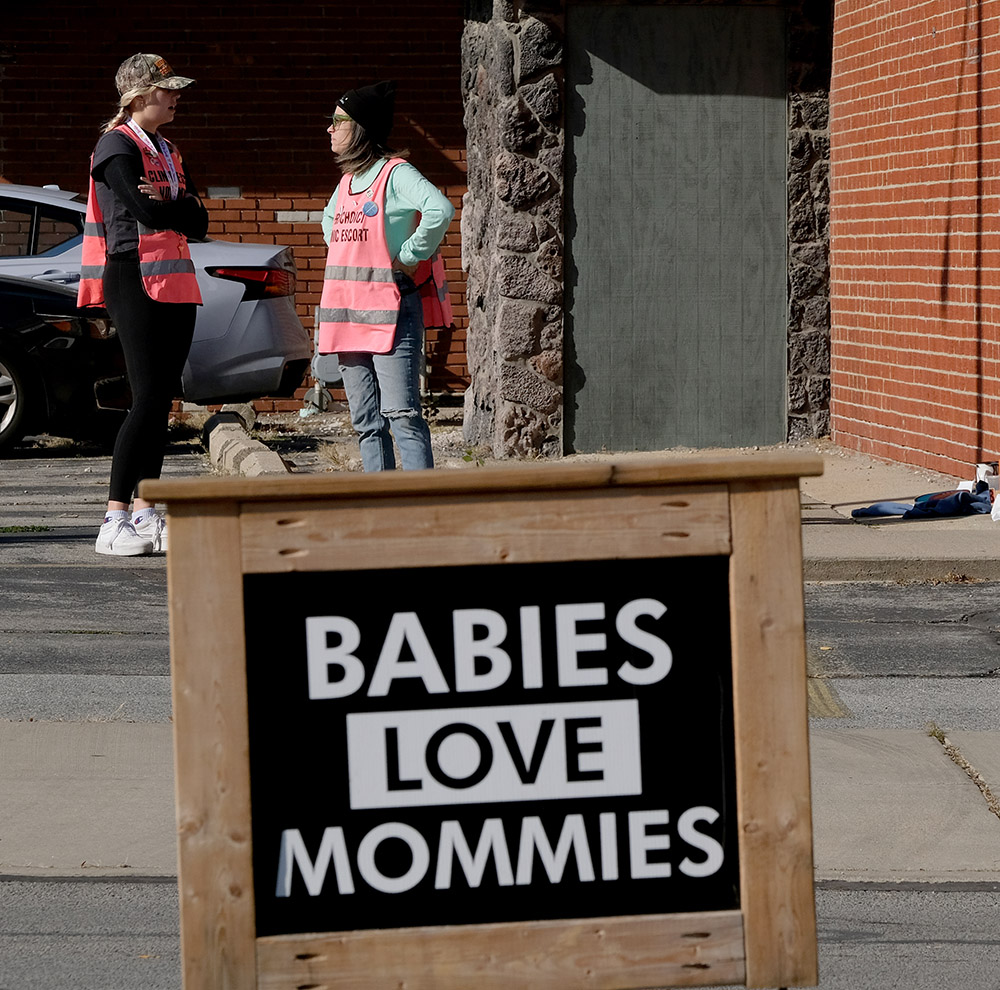
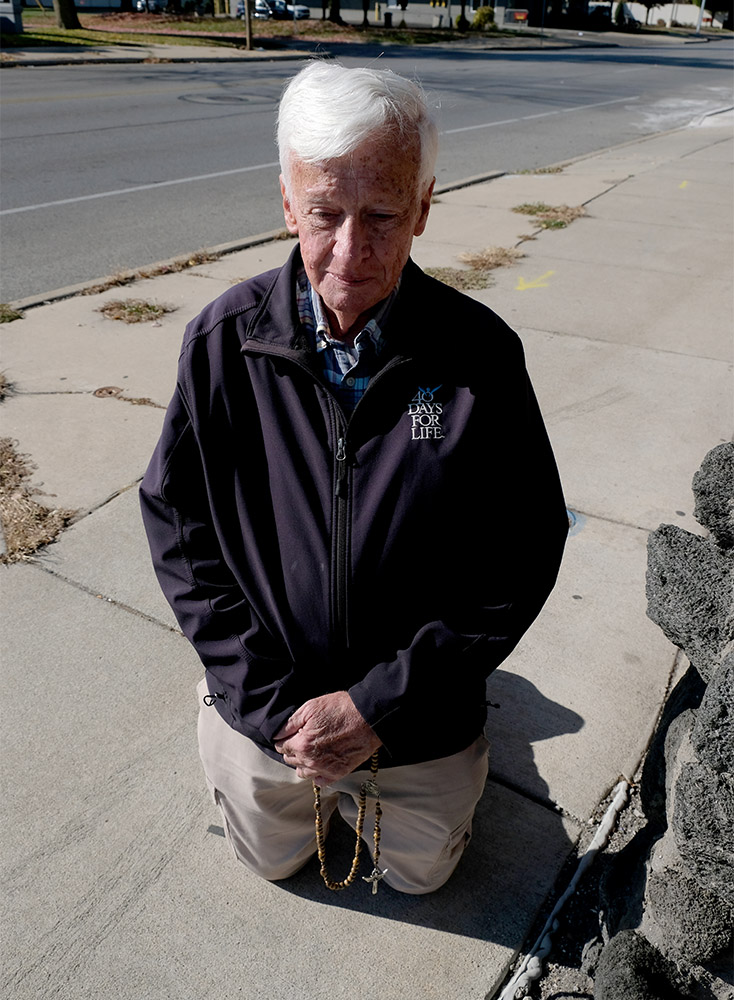
As a child growing up in Toledo, just a few blocks from the Women’s Center (formerly known as Capital Care Network), Hady didn’t have an understanding of the Center’s mission, but she did get the sense that it was controversial.
“We used to see this super old man that would walk the sidewalk with a giant cross on his back, but not realize what it was,” recalled Hady, referring to who she now recognizes as a likely anti-abortion protester.
Hady was inspired to abortion activism when she read work by Robin Marty, the author of Crow After Roe and Handbook for a Post-Roe America. The author’s account of a clinic escort’s experience made her want to work as an abortion escort, despite the details of that escort being harassed. She started volunteering for Toledo Abortion Center Escorts (TAC), and her activism snowballed from there.
“I became a clinic escort and the rest is history,” said Hady, adding she then started getting involved in other aspects of pro-choice advocacy in Toledo. “It’s like a gateway drug, you know; it starts here and then you go do everything else.”
Hady is referring to her service on two boards — The Aggie Fund and Abortion Forward (formerly Pro-Choice Ohio until a name change in May 2024) — as well as her full-time position as program director for Abortion Access Front.
What to know about The Aggie Fund
How does The Aggie Fund work? Essentially, the organization is funded primarily by community donations, but they are also part of the National Network of Abortion Funds collective. NNAF funding is distributed equally to abortion funds nationwide, including The Aggie Fund.
The Aggie Fund provides money for transportation, lodging and other logistical expenses, along with the money for the actual procedure (or pill). The abortion itself can cost between $600-$800, according to the Aggie Fund’s website. Because of demand, The Aggie Fund has to cap the amount of funds they disperse to make sure they can stay in operation.
The Toledo Women’s Center currently provides medication abortion up to 11 weeks and 6 days. Procedural abortions were provided at the Center about five years ago, but are not available at this time; however, the Center is in the process of being capable of providing the procedures in the near future.
“To ensure that we can still operate in a year, we have to unfortunately set monthly caps for how much we are able to fund out,” Hady said. “I don’t think there’s any fund in the country right now that is bringing in as much as they are spending monthly. We have 14 states with no abortion access anymore. Every time a state goes down, that ripples out; patients have to travel somewhere and, as the closest appointments fill up, the higher the costs are. Clinics are strapped.”
Hady adds that The Aggie Fund money goes to clinics like the Toledo Women’s Center, rather than directly to the patient. The Fund spent $9,860 on abortion costs for 76 patients from July 2020-June 2021; $42,812 on abortion costs for 162 patients from July 2021-June 2022; $140,744 for 405 patients from July 2022-June 2023; and helped an additional 51 patients from other states who needed to travel to get an abortion during that year (stats can be found at aggiefund.com). Their numbers have only increased since then.
“In ‘23 to ‘24, we’re probably going to get close to six figures — $200,000 — so our funding in four years has increased, you know, 2,000 percent,” said Hady, adding that “there’s a dearth of funding in the movement from the top down. The biggest funder of abortion, the National Abortion Federation, had to cut theirs. There are funds that run out every week, so when we unfortunately have to stick to our monthly budget, we are often out of additional money.”
In light of H.R. 271 – Defund Planned Parenthood Act of 2025, introduced to Congress on Jan. 9, it’s highly possible that funds for abortion providers — both large and small — will continue.
The Aggie Fund serves residents of northwest Ohio and southeast Michigan. Those who need help can see the map of counties they serve on their website here, along with links to other resources for those who live outside of those counties.
Pain point: The focus on trauma
In so many discussions about the life-threatening nature of limiting reproductive rights for women, many focus on the horror stories. Women who have pregnancy complications need abortions but can’t get them; women who miscarry and are denied care during their miscarriages; and other tragic stories that pull at the heartstrings of empathetic readers.
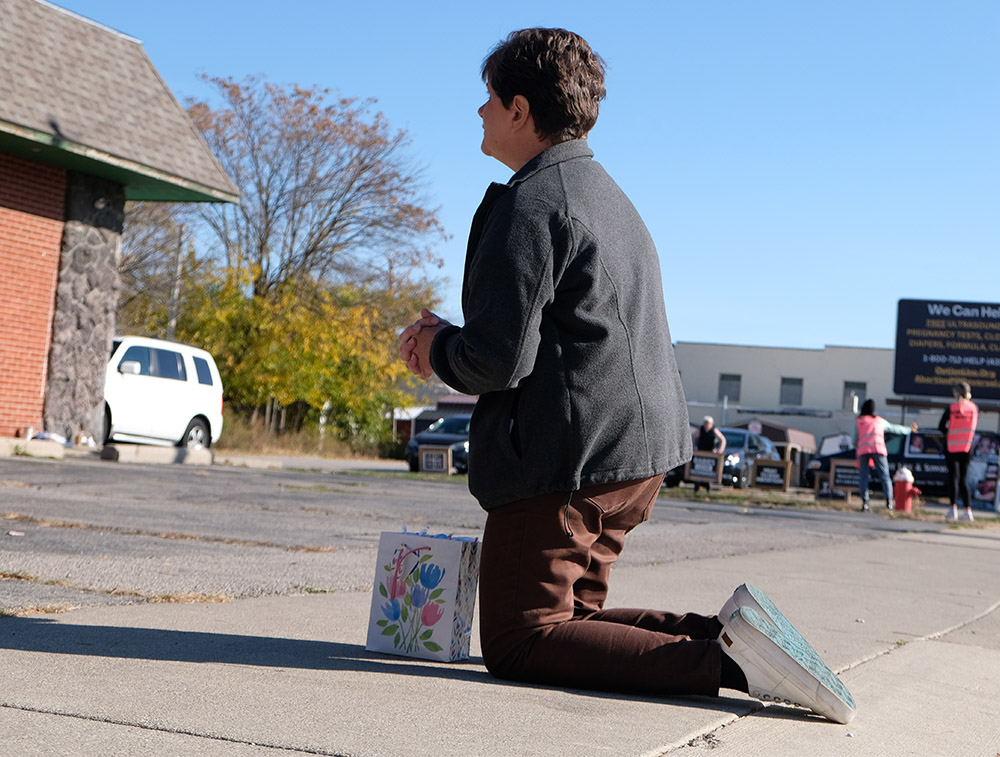

We asked Hady about any such scenarios she’s heard about from the women she helps, and her response was thought-provoking.
“I’ve talked to patients who had wanted pregnancies and then were diagnosed with cancer and had to get abortions. I’ve talked to patients who have six kids and just had another one and can’t afford them. Or, unfortunately, patients who may have been sexually assaulted. All of those stories we’ve heard are heartbreaking,” Hady said.
“But I also think sometimes we focus too often on the tragedy stories, and that we’re communicating that the only okay abortions are the ones that are…you have to have harm inflicted on your body to be deserving of it. No matter what their reasons, no matter their circumstances, we have to validate all abortion experiences.”
In other words, women shouldn’t have to have experienced tragic circumstances, like being raped, or having had a planned pregnancy go terribly wrong, in order to have an abortion. According to Hady and many other pro-choice activists, abortions without trauma should be viewed with an equal level of empathy and respect as those performed after a trauma.
Meet Amelia Stower: Toledo Women’s Center
There aren’t many 21-year-olds who can say they owned an abortion clinic, but Amelia Stower did. After the former owners of Toledo Women’s Center (still called Capital Care at the time) needed to step down in 2020, Stower took over for about 18 months. She was even the target of a lawsuit by Right to Life during her tenure.
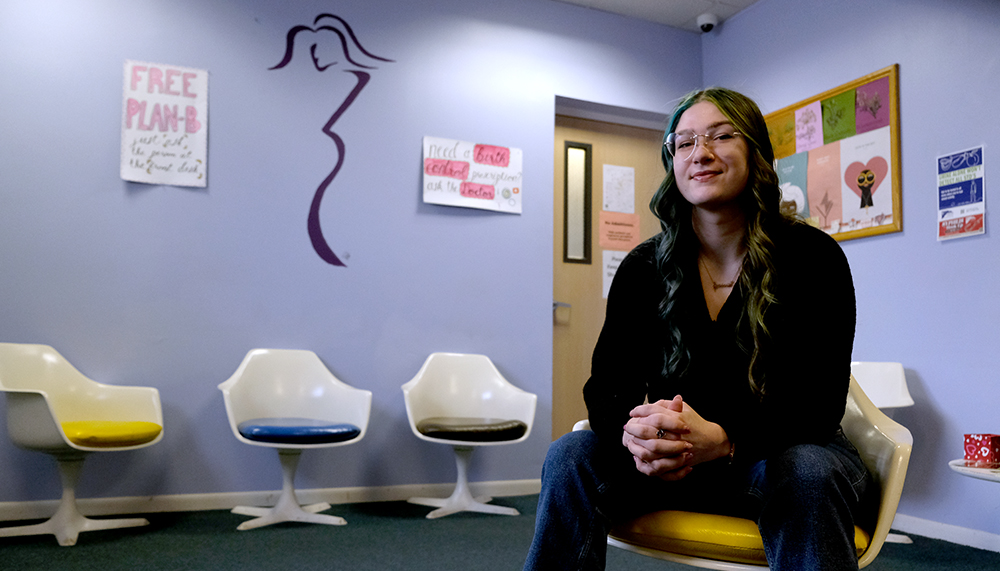
“I took ownership in August [of 2020]; they didn’t hit me with the lawsuit until, I think it was the first week of March, and it was, coincidentally, right after we did a little hearing over getting a safety ordinance,” said Stower, explaining that she had publicly spoken about Center staff and patients being harrassed by pro-life protesters. She said that’s why they were proposing a “buffer zone” between the protesters and the Center.
The lawsuit filed against Capital Care and Stower claimed that because the organization and Stower herself did not have a medical license, they could not offer abortion services. “The thing is, they had been watching me since I took over ownership, so it’s just kind of funny timing to all of us that they chose then to suddenly go after me.”
On Feb. 16, 2024 the lawsuit was finally dropped with the following decision:
“Appellants, Right to Life Action Coalition of Ohio, Greater Toledo Area Right to Life, and Jeffrey Barefoot (collectively, “Right to Life”), appeal from the judgment of the Lucas County Court of Common Pleas dismissing their action against appellees, Capital Care of Toledo, LLC, D/B/A Capital Care of Toledo (“Capital Care”), 2. and Amelia Stower, on grounds of mootness.” (State ex rel. Right to Life Action Coalition of Ohio v. Capital Care of Toledo, L.L.C).
At 21, Stower received a full dose of what the conflict can be like on the abortion front, but she hasn’t backed down from the cause yet.
“I think it was a little bit of retaliation against me for speaking out,” she said. “But they also looked at my age, gender, and were like, ‘Oh, this might be easy. We can kind of scare her into shutting down.’”
Stower moved on from her role as owner so she could continue pursuing a degree at the University of Toledo, but she still has a very active role at the Center as assistant manager, a position that includes front desk administrative work, patient advocacy and funding management.
Complicated neighbors: The Center & The Haven
The Toledo Free Press covered The Pregnancy Center in September 2024, a story outlining what that organization does under the umbrella of the Bella Vita Network, a nonprofit that runs The Pregnancy Center, Soul Purpose and The Haven. The latter — a facility dedicated to counseling women and their partners who are coping with regrets post-abortion — is next to The Toledo Women’s Center.
Savannah Marten, the executive director of Bella Vita Network who we spoke to for that article, noted that the Center and the Haven have a “great relationship.”

Stower weighed in. “I would say they treat us with respect. Yeah, they’ve always been nice enough to us. As far as pregnancy centers go, they’re one of the better ones.” She is referring to “pregnancy centers” in the broader sense of the term: Facilities that give ultrasounds and are often operated by pro-life groups.
Hady had this to say about the group’s proximity to the center and how the two organizations co-exist, along with her own experience with Marten: “We are diametrically opposed on many things, but I like Savannah as a person. I understand the heart that she has for this work. So I have a good relationship with her, because we have to. We do share that property. We do share that driveway.”
An intricate web
Though the focus of this article is on the ways reproductive rights volunteers can get involved with the movement, each interview we do prompts more digging. What is the future of abortion in Toledo when only one clinic remains and offers medicated abortions?
Though The Pregnancy Center coincides relatively peacefully alongside its ideological opposites, what is the approach of other pro-life centers in the Toledo area? And, finally, how are women in Toledo coping with the ever-changing landscape of reproductive care in the U.S.?
If you have stories to share, reach out via our Story Tip Line.

